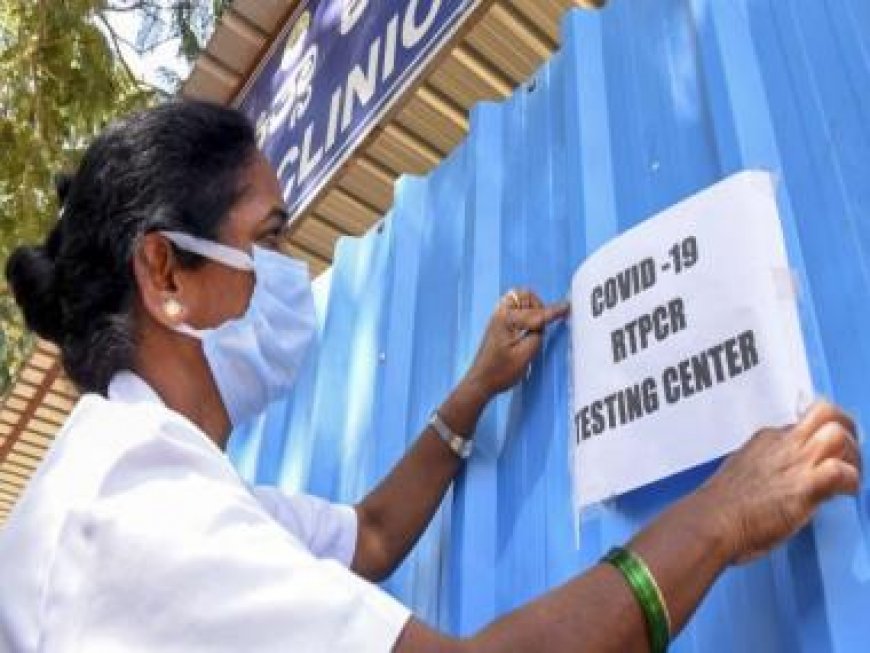Karnataka logs over 70 new COVID cases: Will the state impose curbs for New Year’s?
Karnataka logs over 70 new COVID cases: Will the state impose curbs for New Year’s?

New Year is just around the corner and people in India are all gearing up for the festivities. However, the rising COVID-19 cases, it seems, is ready to play party-pooper.
On Tuesday, the country logged 412 COVID-19 infections, with the Union Health Ministry adding that there were 4,170 active cases in the country. The spike in cases, attributed to the JN.1 sub-variant that is also on the rise in the country, has led many to ask if it’s time for people to take an additional dose of the vaccine. However, the Centre has said there’s no plan as to mandate booster doses, as evidence available so far does not support it.
Karnataka, specifically, is seeing a huge surge in COVID cases, owing to which the state has imposed certain guidelines and protocols to arrest the spread. But will Karnataka have a good New Year?
Karnataka COVID surge
As of Tuesday, the southern state of Karnataka reported 74 fresh cases of coronavirus and two deaths. With this, the total number of active cases in the state has risen to 464 and recent COVID-19 deaths stand at nine.
Medical officials of the state added that the positivity rate in the state was at 1.15 per cent while case fatality rate was at 2.70 per cent.
The state’s health bulletin said that the two deceased were aged 51. One of them was admitted in Dakshina Kannada with symptoms of fever, cough and breathlessness on 22 December. He had severe acute respiratory infection and died a day later. The other patient, who was admitted in Mysuru on 20 December, had symptoms of cough and breathlessness and died on Christmas day. He too had a severe acute respiratory infection but was vaccinated.
The state has also recorded a whopping 34 COVID cases of the JN.1 variant, with 20 being reported from Bengaluru alone. This is significant as the country has until now logged a total of 69 cases of the new sub-variant, since it was first detected in Kerala.

Karnataka COVID guidelines
In light of the rising cases in the state, health officials and government officials met on Tuesday under the leadership of Health Minister Dinesh Gundu Rao to discuss the measures that can be taken to manage the COVID situation in the state.
Following the meeting, Rao urged people to be more cautious and vigilant, adding that testing would be further ramped up in order to identify the infected persons. This comes after Karnataka had last week made it compulsory for those above 60 with comorbidities, and symptoms of cough, phlegm and fever, to compulsorily wear face masks.
The state also announced that parents shouldn’t send children with symptoms to schools and has asked all to adhere to COVID appropriate behaviour like social distancing and mask-wearing.
Home isolation was also reintroduced in the state. Officials have said that all COVID positive people must henceforth isolate at home for seven days while their symptomatic primary contacts should be tested.
The state has also decided to administer “precautionary” vaccines for the aged and those with co-morbidities. For this, the state has ordered 30,000 doses of Corbevax vaccine from the Centre. Health workers in the state would be administered flu vaccines as a protective measure. Moreover, separate COVID wards are being set up at Victoria Hospital and Rajiv Gandhi Institute of Chest Diseases in Bengaluru, all hospitals of medical colleges and all district hospitals.
The state health minister also stressed that while the government was not imposing any restrictions on New Year celebrations, there was a general advisory to wear masks at crowded spots and observe COVID-approved behaviour such as social distancing and regular hand washing.

Experts speak on COVID surge
While most attribute the rise in COVID infections in the country to the detection of the JN.1 sub-variant, some experts note that other strains such as BA.2.86, commonly known as Pirola, could also be blamed.
Dr Raman R Gangakhedkar, epidemiologist, former Indian Council of Medical Research scientist and member of the government’s COVID-19 task force, was quoted as saying, “Based on whatever information we have, it appears that JN.1 can infect many at a time, more than other mutants. In India, the virus is present and with time it might pre-dominate. But having said that, other strains also tend to exist and can continue causing the infection.”
And JN.1 is prevalent in the country as well as the world; in the US, it accounts for 39-50 per cent of all COVID cases, according to the Centre for Disease Control and Prevention (CDC).
Dr Lalit Kant, a former ICMR scientist, concurred with Dr Gangakhedkar’s view. “It is not necessary that all the cases that are being reported now are owing to JN.1 strain. The variants keep circulating and mutating. However, one variant will be dominant only, and going ahead, JN.1 might emerge as a dominant strain. But the problem is there is not enough data currently available in India,” Kant told LiveMint.
And despite the surge in COVID cases, experts maintain that there’s no need to panic or worry. Using data and number, they say that while the JN.1 variant, which has been deemed as a variant of interest by the World Health Organization (WHO), there’s no evidence that suggests it causes more severe illness.
Dr Ujjwal Prakash of Delhi’s Ganga Ram Hospital told news agency ANI that JN.1 was a mild sub-variant which caused upper respiratory symptoms. The symptoms comprise fever, sore throat, runny nose, headaches, and, in certain instances, mild gastrointestinal symptoms. He added that the symptoms were improving within four to five days.
With inputs from agencies
What's Your Reaction?



























































